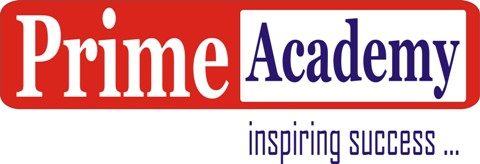Welcome to Prime Academy
For getting access of recorded video lectures of
Intermediate Micro Economics – II [ECON 010] for Economics (H) Semester IV
you need to subscribe our course.
If you are not registered at our website then Register Here (After registration please inform us at +91 9899 192027 to get the access)
If you are already registered and have Got the access then Login to watch the Lectures
The Intermediate Micro Economics – II [ECON 010] Course for BA (Hons) Economics Semester IV, Delhi University has been taught by Mr. Dheeraj Suri. The Video Lectures are based upon the books prescribed by the University of Delhi. The Duration of Video Lectures is approximately 55 Hours.
Course Fee : Rs. 7000
Access of Video Lectures is provided on any one of the following devices:
Windows Computer or Laptop, or
Android Phone or Tablet, or
Apple Iphone or Ipad, or
Apple Macbook,
till end of Semester IV Exams.
Once You get the access you need to login and download our APP and all the lectures from your login account and play in your device.
You will Get
- Full Course Video Lectures
- Complete Study Material (PDF Notes) which includes Concepts, Previous Year Questions, Numerical Questions, MCQ’s and Important Questions
- Online Discussion Forum to Post Your Queries to Discuss with Faculty & other fellow Students
- Live online Doubts Sessions for resolution of Doubts
- Mock Tests at the Website
- Video Lectures Cover Theory Portions Exchaustively + Complete Solutions of Back Questions of readings + Solutions of Previous Years Papers + Large Number of Numericals
On Payment of Fee we will create your account on our website & you need to login and download all the lectures & our APP through that login account
Payment Details
To purchase any course you need to transfer the amount either through Google Pay or PhonePe at 9811261671 or Paytm at 9899192027 or Transfer through net banking IMPS into the following account
Account Details
Dheeraj Suri
Saving Account Number
392010100053871
Axis Bank, Model Town Branch
Delhi – 110009
IFS Code : UTIB0000392
Payment App Details
GPay Number : +91 9811261671
PhonePe Number : +91 9811261671
Paytm Number : 9899192027
After transfer update us with payment details through Whatsapp at +91 9899192027
Demo Lectures
Demo Test
Click here for PDF of Chapter 1
Click Here for Reading List of Intermediate Micro Economics – II
Exam Pattern
The Question Paper will be of 90 Marks
Suggested weightage for each unit in the final examination
Unit I : 20%
Unit II : 30%
Unit III : 10%
Unit IV : 20%
Unit V : 20%
The division is flexible and plus/minus 5 percentage points of the marks can be done in each unit
Paper Pattern
Question paper can have
Either
Two compulsory questions and Five questions out of which students can do any three questiona (with equal weigtage to all questions)
Or
Seven Questions out of which students can do any Five questions (with equal weigtage to all questions)
Recommended Readings
►Serrano, Roberto and Feldman, Alan (2012), A short course in intermediate Microeconomics with Calculus, Cambridge University Press
►Espinola-Arredondo, Ana and Munoz-Garaia, Felix (2020), Intermediate Microeconomic Theory, MITPress.
►Munoz-Garaia, Felix (2017) Practice Exercises for Advanced Microeconomic Theory, MIT Press.
►Dunaway, Eric; Strandholm, John C., Espinola-Arredondo, Ana and Munoz-Garcia, Felix (2020) Practice Exercises for Intermediate Microeconomic Theory, MIT press. [DSEM]
Course Content of our Video Lectures
Lectures are Strictly as per Latest Syllabus for UGCF 2024
Unit I : Monopoly
Approximate Weightage : 20 Percent (Plus/Minus 5%)
Chapter 1 : Monopoly
Duration of Video Lectures : 200 Minutes
Based Upon Chapter 10, AMG
Topics Covered
► Monopoly Introduction and Features,
► Barriers to Entry,
► Equilibrium Under Monopoly,
► Positive and Negative Effect on Marginal Revenue,
► Misunderstandings of Monopoly Markets, Absence of Supply Curve,
► Lerner Index and Inverse Elasticity Rule,
► Multiplant Monopoly,
► Deadweight Loss under Monopoly,
► Advertising in Monopoly,
► Monopsony,
► Regulation of Monopoly,
► Questions from recent Eco (H) examinations,
► Back Questions of Readings
Chapter 2 : Price Discrimination and Bundling
Duration of Video Lectures : 240 Minutes
Based Upon Chapter 11, AMG
Topics Covered
► Conditions for Price Discrimination,
► First Degree Price Discrimination,
► Second Degree Price Discrimination,
► Two Part Tariff,
► Third Degree Price Discrimination,
► Bundling,
► Questions from recent Eco (H) examinations,
► Back Questions of Readings
Unit II : General Equilibrium
Approximate Weightage : 30 Percent (Plus/Minus 5%)
Chapter 3 : An Exchange Economy
Duration of Video Lectures : 446 Minutes
Based Upon Chapter 15, Roberto Serrano & Allan M. Feldman
Based Upon Chapter 9, DSEM
Topics Covered
►Partial & General Equilibrium Meaning,
►Robinson Crusoe Economy,
►Edgeworth Box,
►Feasible Allocations, Pareto Efficient Allocations,
►Contract Curve,
►Mathematical Derivation of Pareto Efficiency,
►Gross & Net Demand,
►Walrasian Equilibrium, Walras Law,
►First Fundamental Theorem of Welfare Economics,
►Second Fundamental Theorem of Welfare Economics,
►Numerical Problems & Solutions,
► Questions from recent Eco (H) examinations,
► Back Questions of Readings
Unit III : Methods of Monopolistic Competition
Approximate Weightage : 10 Percent (Plus/Minus 5%)
Chapter 4 : Imperfect Competition
Duration of Video Lectures : 380 Minutes
Based Upon Chapter 12, Roberto Serrano & Allan M. Feldman
Topics Covered
►Meaning of Imperfect Competition,
►Measuring Market Power,
►Models of Imperfect Competition,
► Oligopoly,
► Bertrand Model,
► Cournot Model,
►Stackleberg Model of Sequential Quantity Competition,
► Price Leadership,
►Product Differentiation,
►Cartels and Collusion,
► Questions from recent Eco (H) examinations,
► Back Questions of Readings
Unit IV : Externalities
Approximate Weightage : 20 Percent (Plus/Minus 5%)
Chapter 5 : Externalities
Duration of Video Lectures : 270 Minutes
Based Upon Chapter 17, AMG
Topics Covered
► Externality Meaning,
► Consumption Externality,
► Production Externality,
► Market Inefficiencies under externalities, Social & Private Costs,
► Pigou Tax, Quasi Linear Preferences & Coase Theorem,
► Market Creation and Other Solutions,
► Tragedy of Commons,
► Questions from recent Eco (H) examinations,
► Back Questions of Readings
Unit V : Public Goods
Approximate Weightage : 20 Percent (Plus/Minus 5%)
Chapter 6 : Public Goods
Duration of Video Lectures : 141 Minutes
Based Upon Chapter 18, Roberto Serrano & Allan M. Feldman
Topics Covered
► Meaning of Public Goods,
► Necessary & Sufficient Conditions for Public Goods Provision,
► The Free Rider Problem,
► Levels of Public Goods,
► Inefficiency of Market Equilibrium,
► Lindahl Taxes,
► Questions from recent Eco (H) examinations,
► Back Questions of Readings
Previous Year Papers (PYQ’s)
Eco (H) IV Sem : 2022
Number Video Lectures : 6
Duration of Video Lectures : 125 Minutes
Eco (H) IV Sem : 2021
Number Video Lectures : 5
Duration of Video Lectures : 110 Minutes
Eco (H) IV Sem : 2019
Number Video Lectures : 4
Duration of Video Lectures : 160 Minutes
Eco (H) IV Sem : 2018
Number Video Lectures : 4
Duration of Video Lectures : 155 Minutes
Eco (H) IV Sem : 2017
Number Video Lectures : 2
Duration of Video Lectures : 170 Minutes

